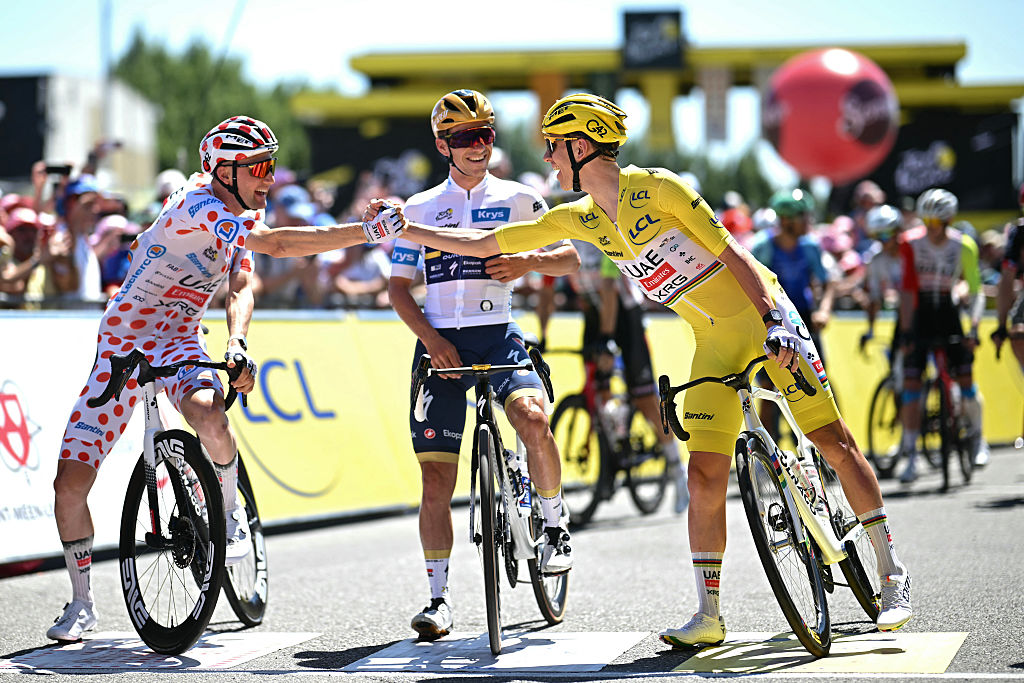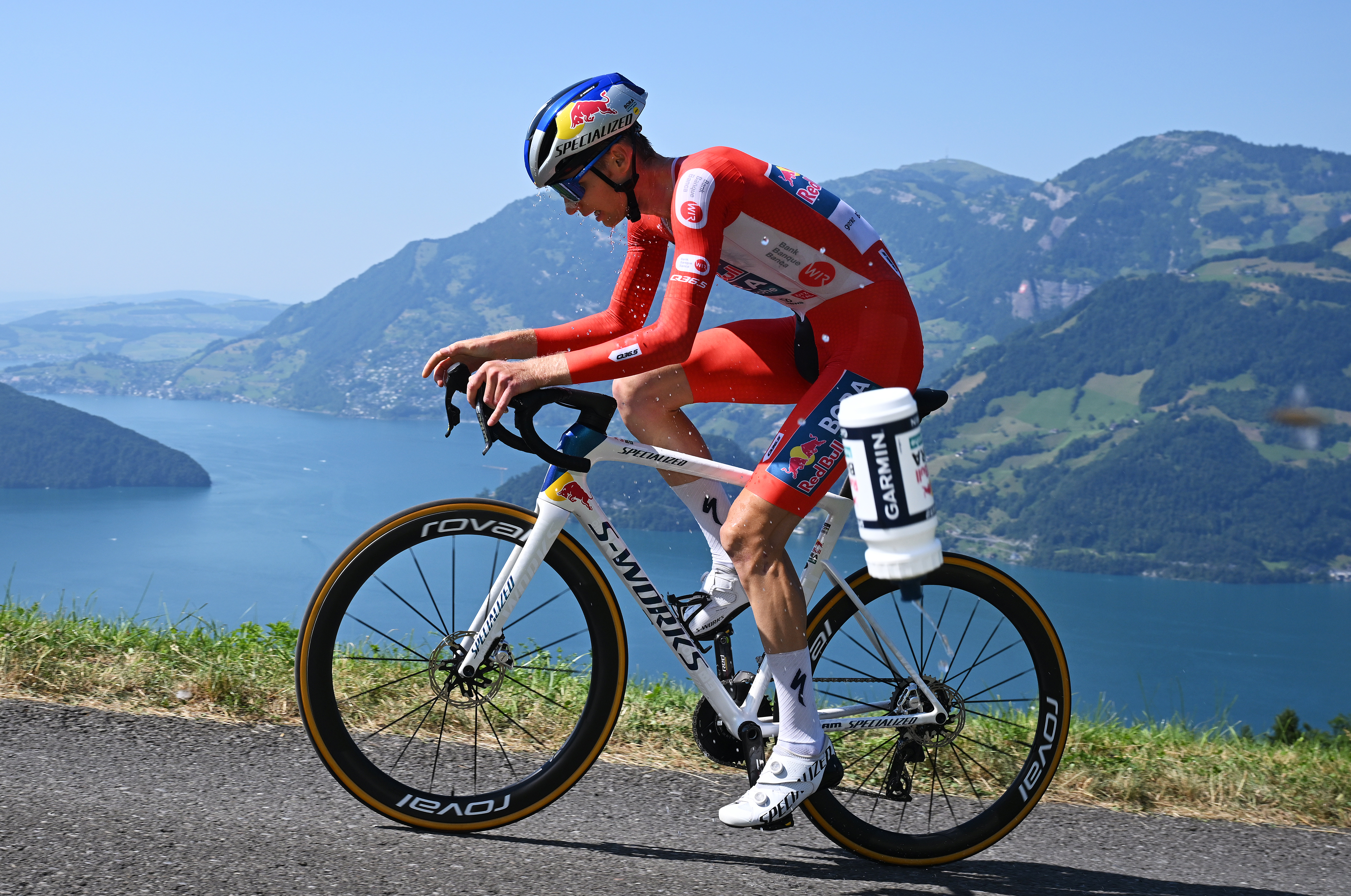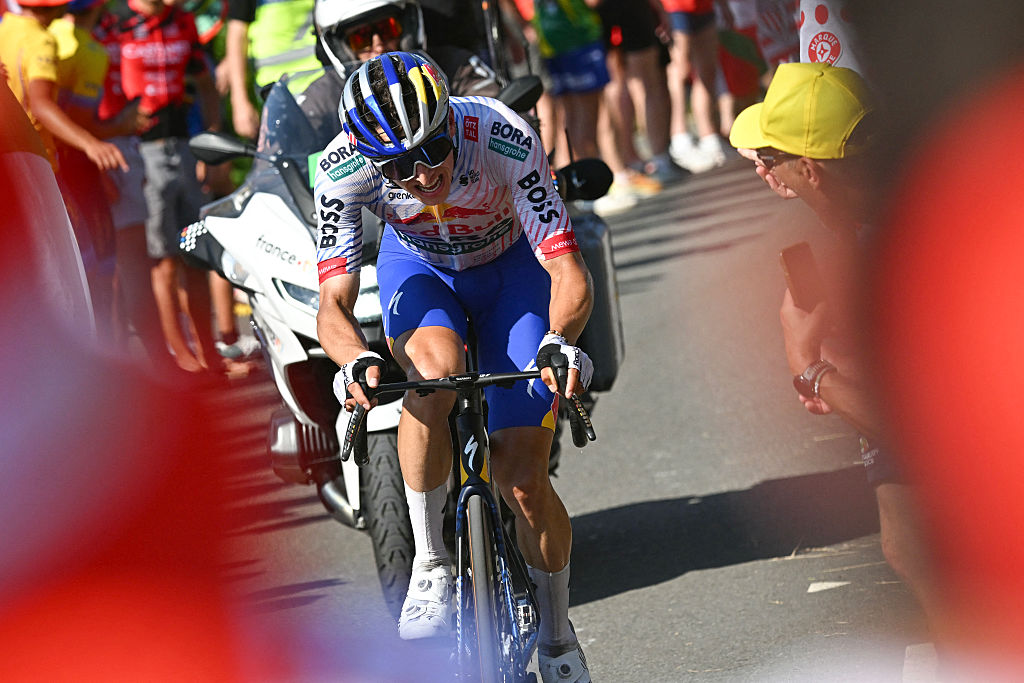Riccò wins second mountain stage via solo Col d'Aspin flyer alla Pantani
Italy's Riccardo Riccò opened up the throttle to distance his rivals on the Tour de France's Col...
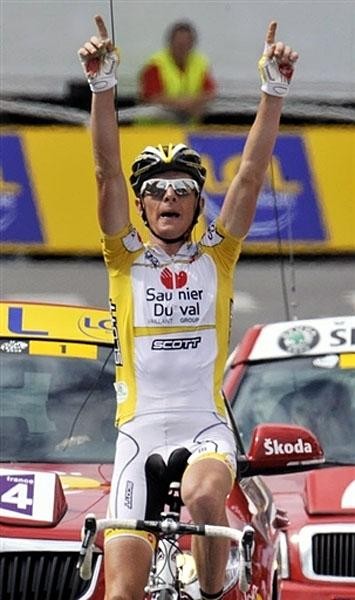
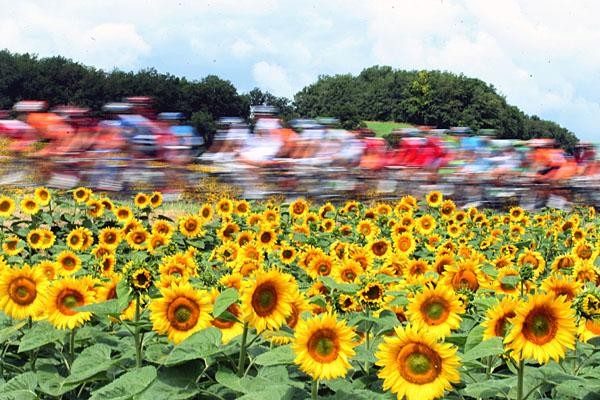
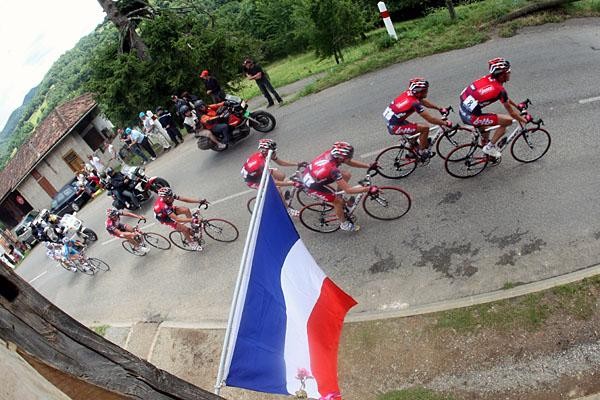
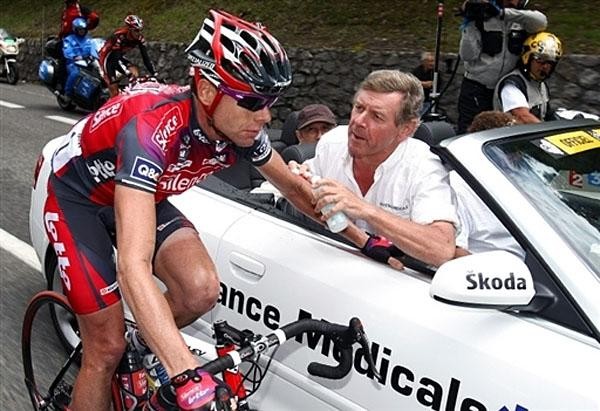
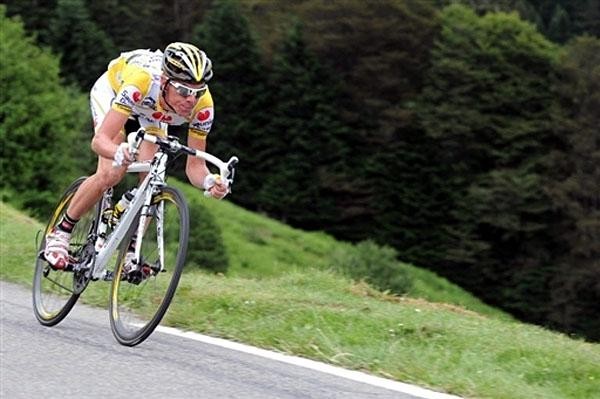
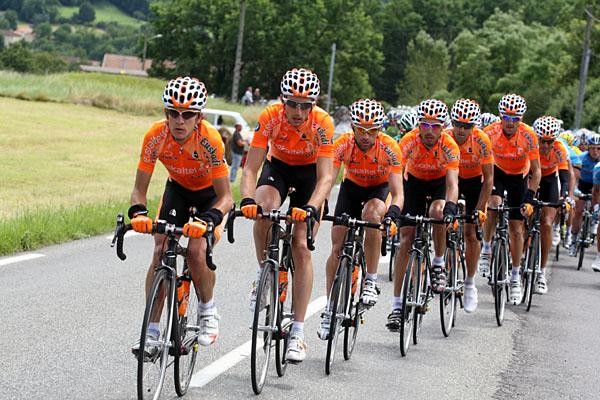
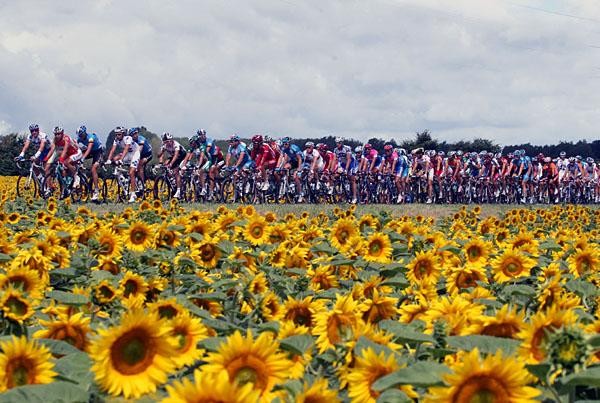
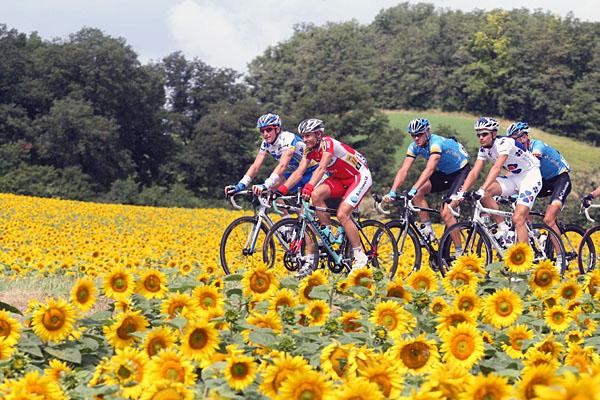

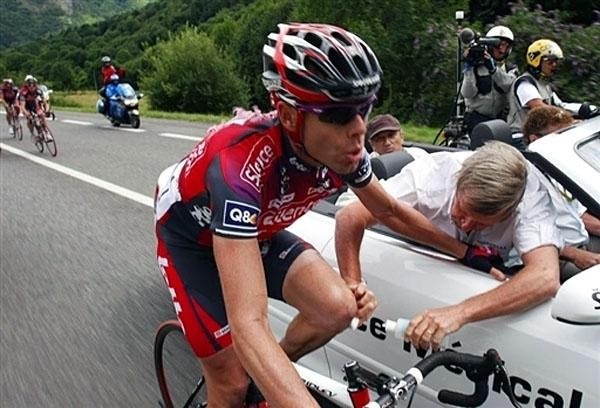
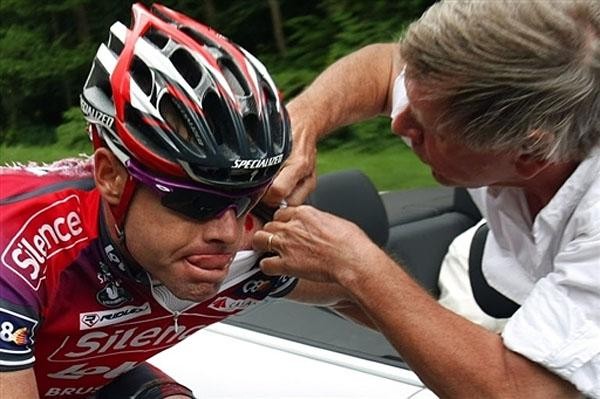
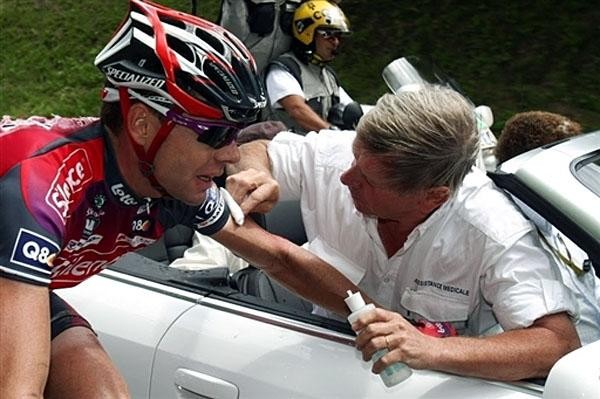
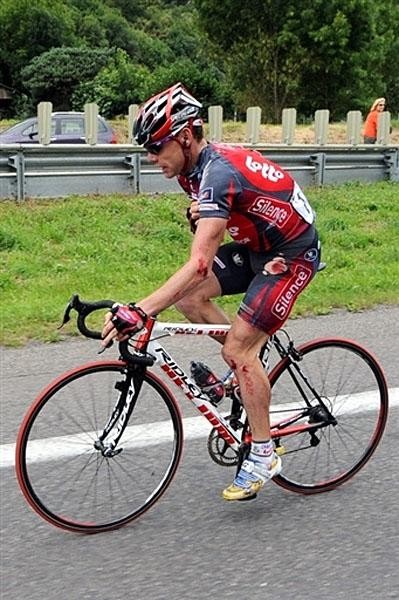
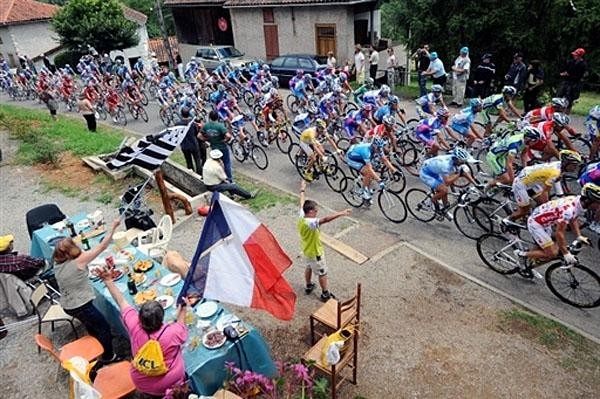
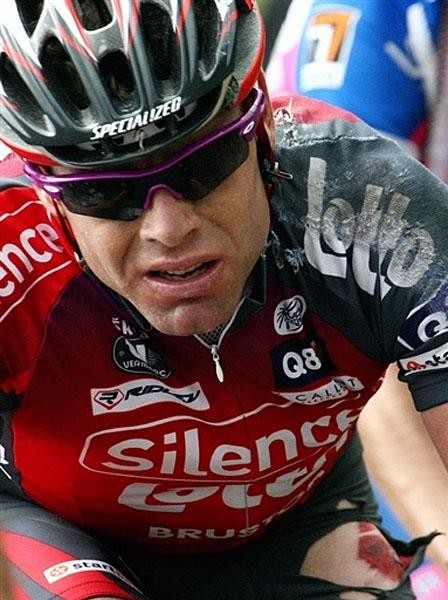
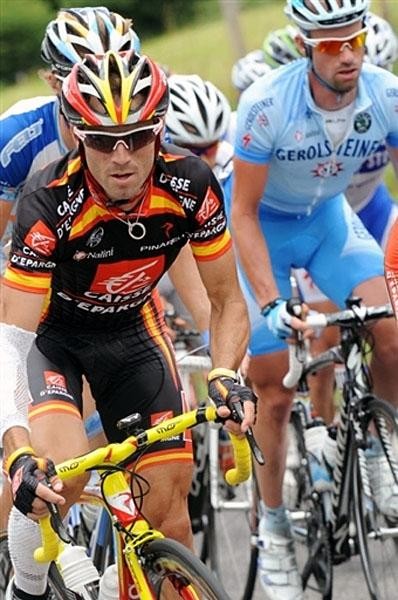
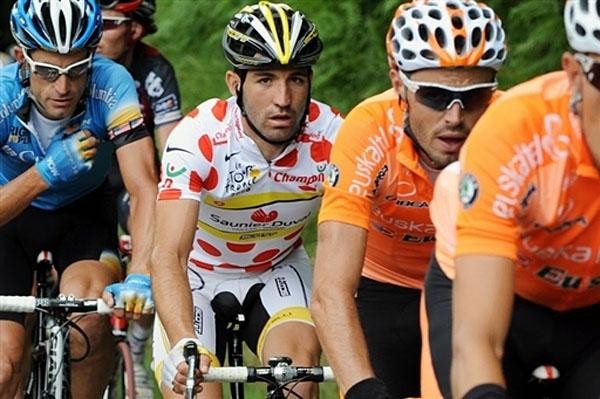
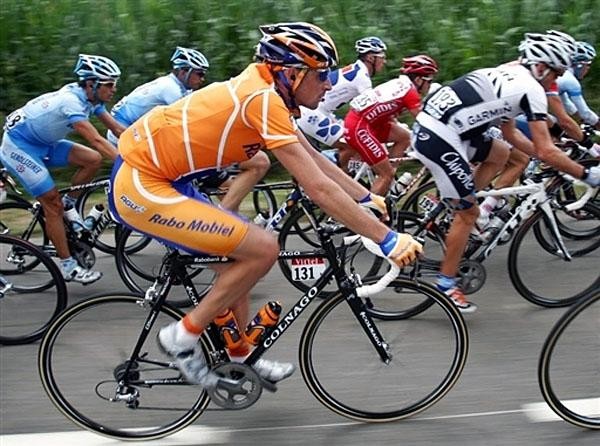
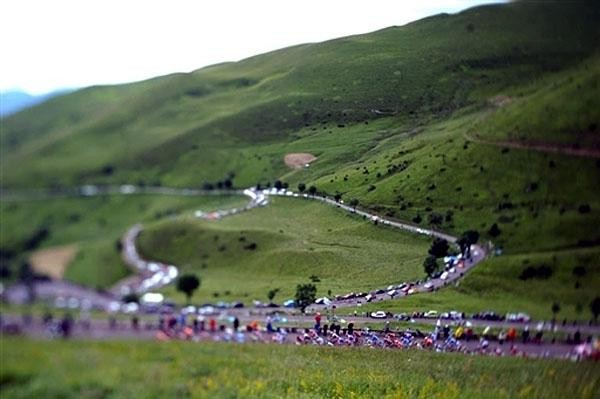
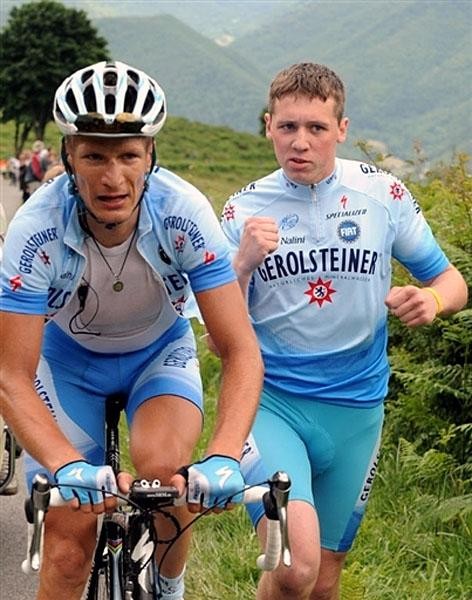
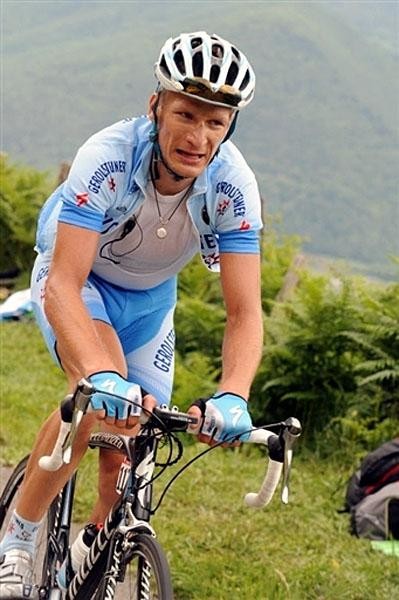
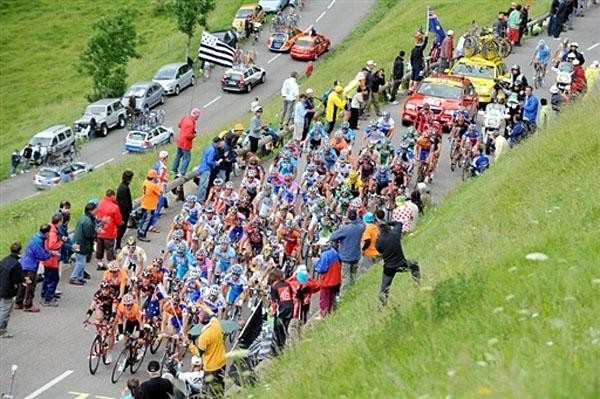
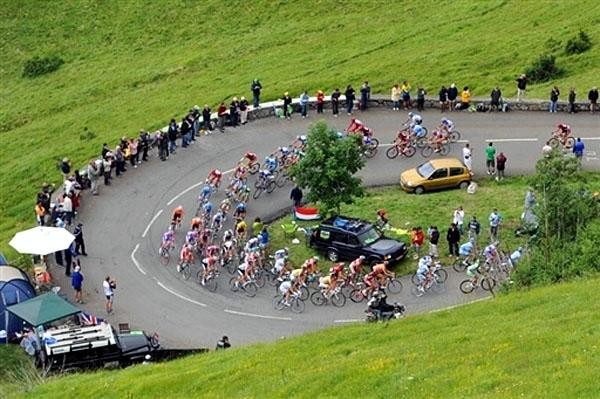
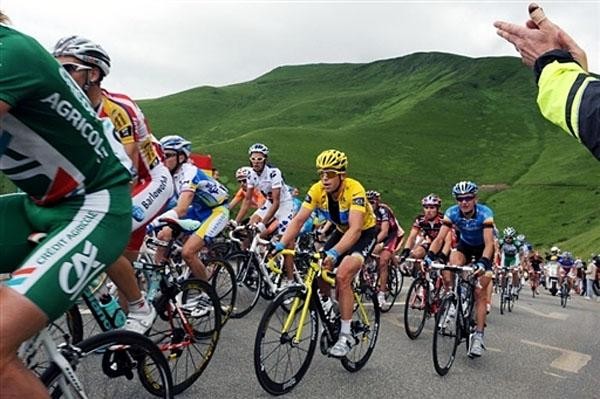
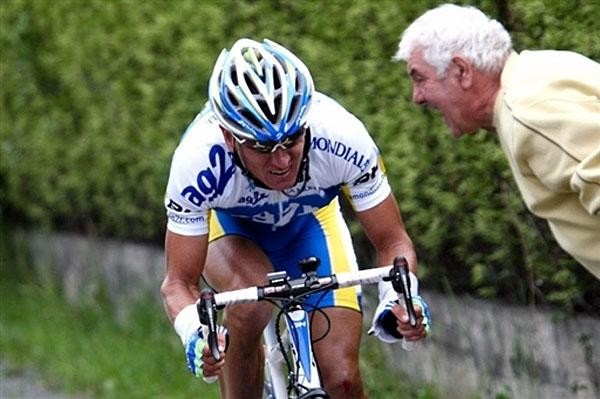
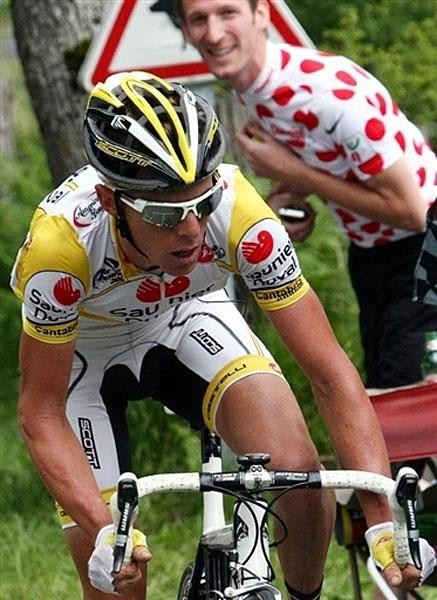
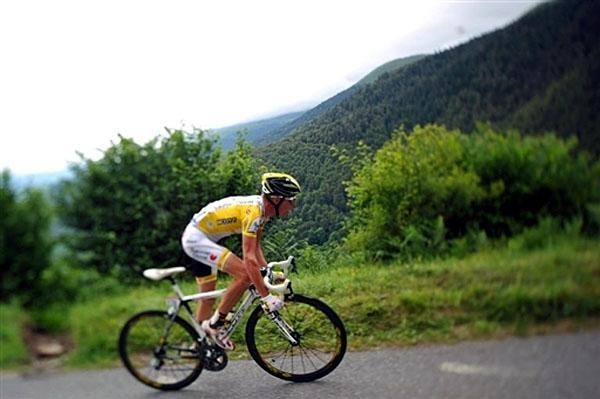

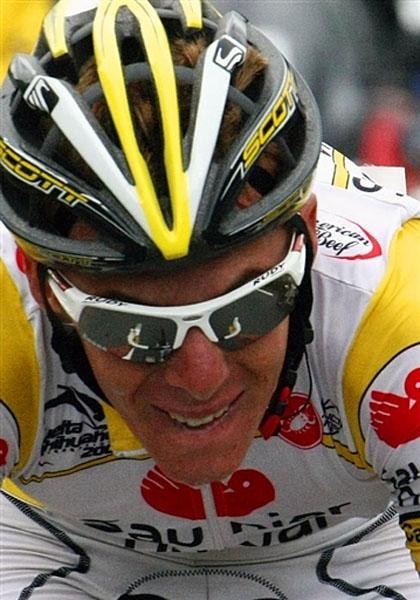

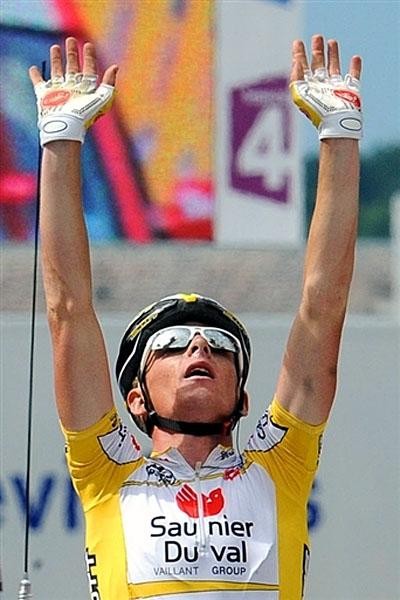
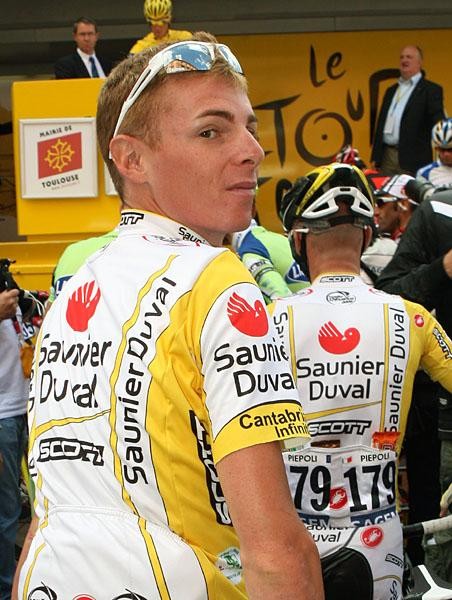
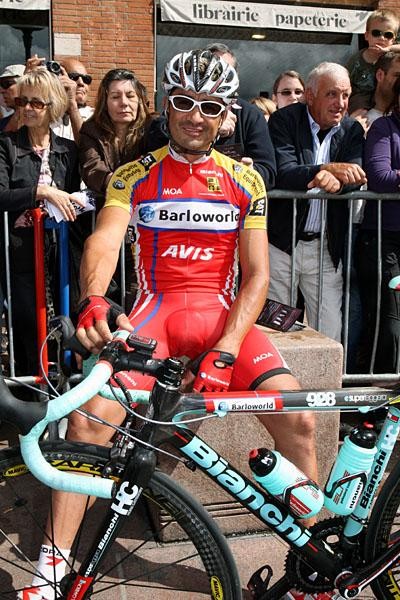
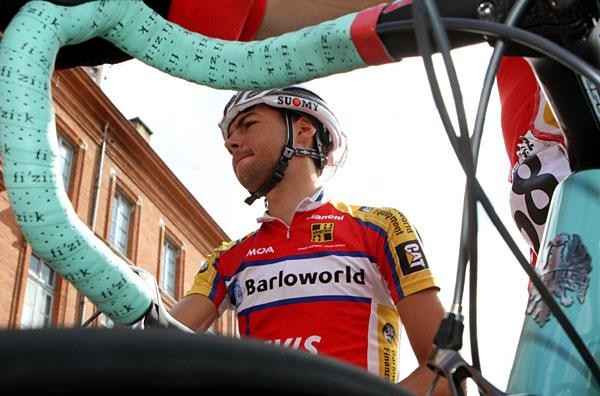
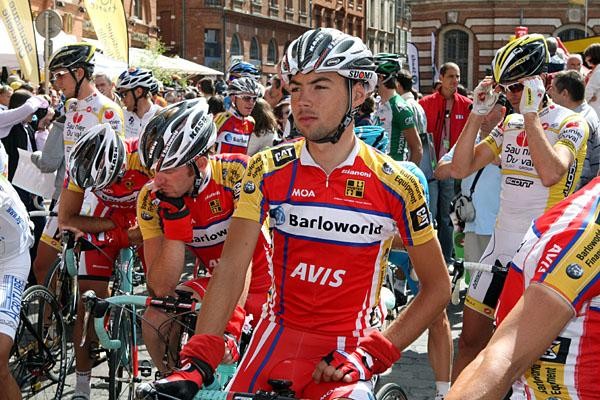
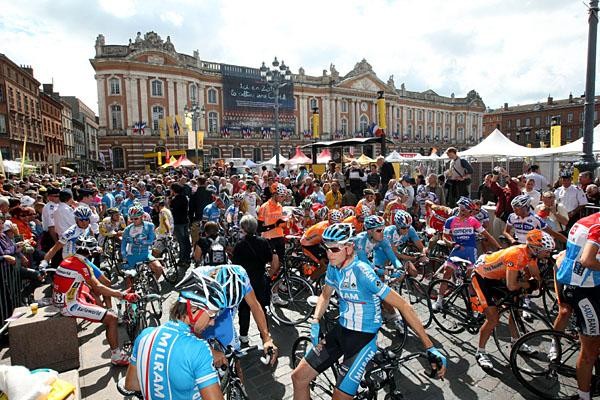
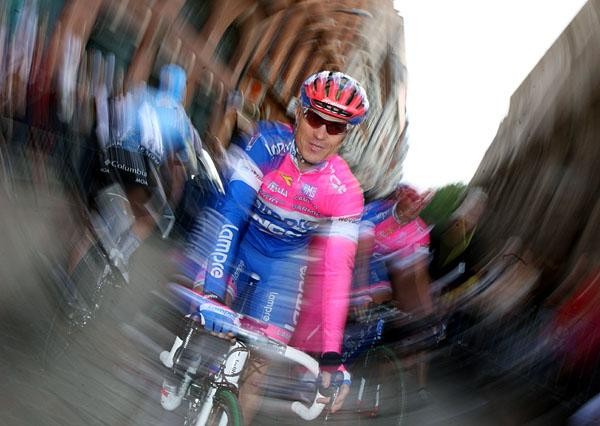
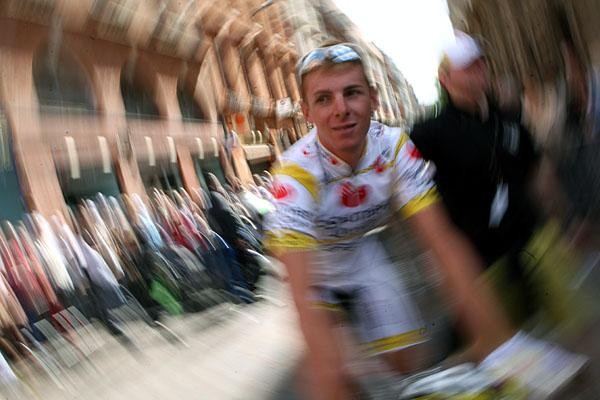


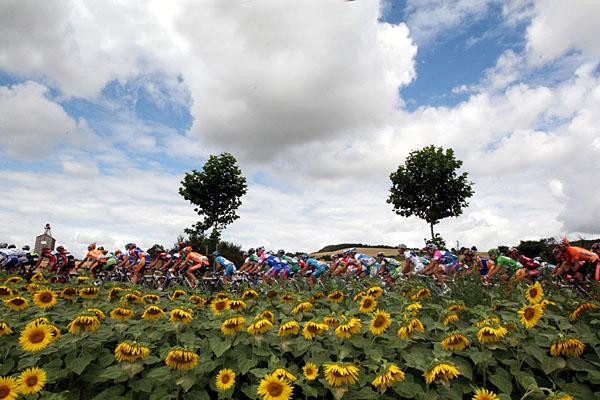
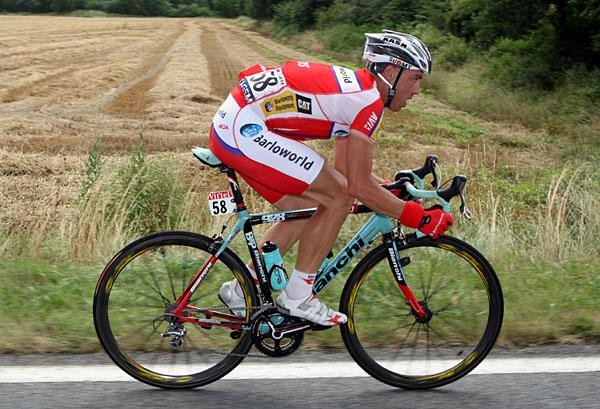

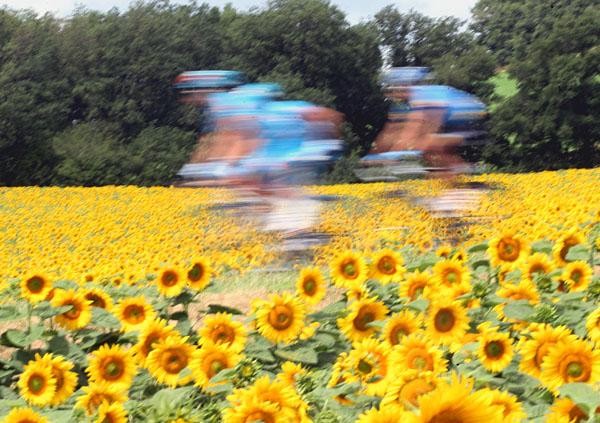

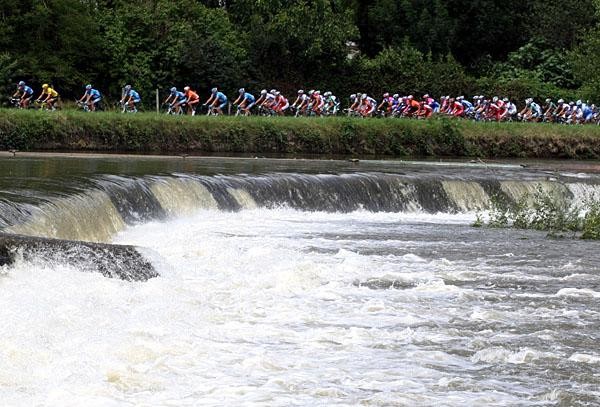
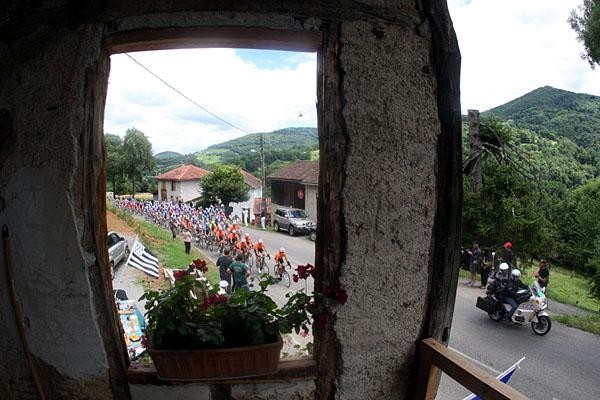
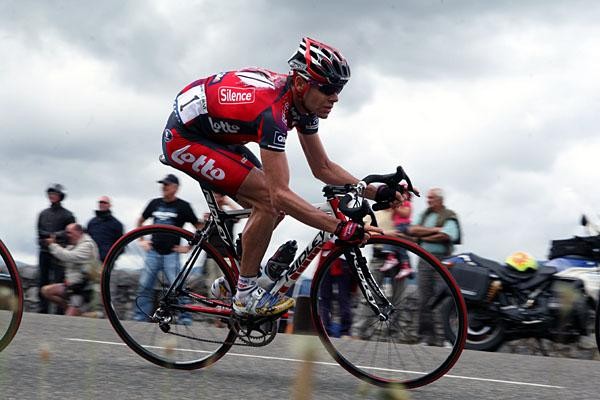
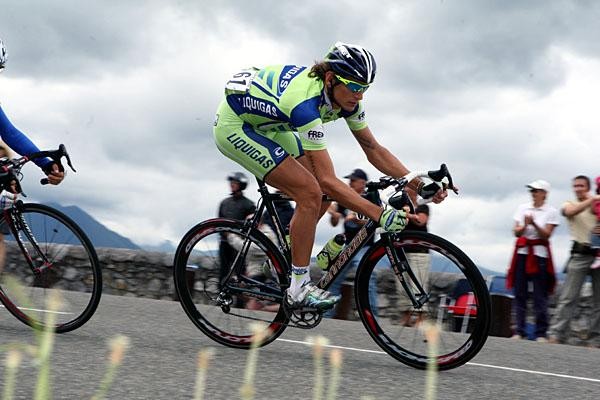
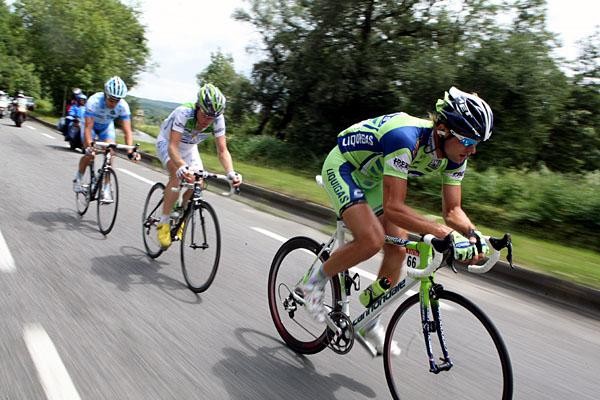
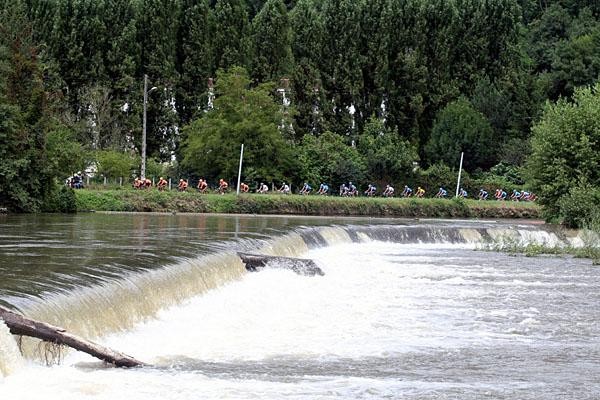
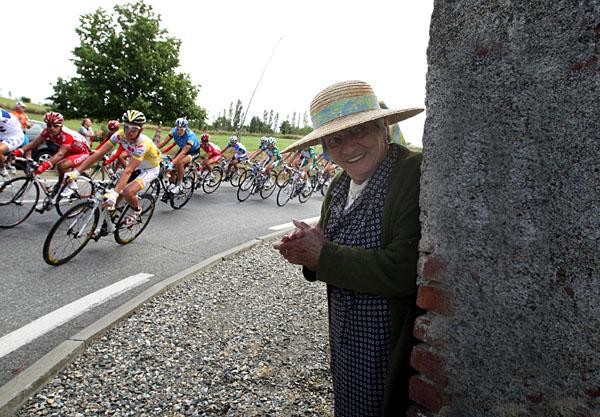
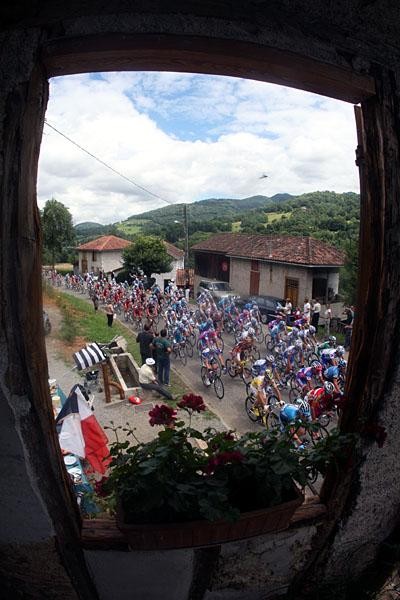

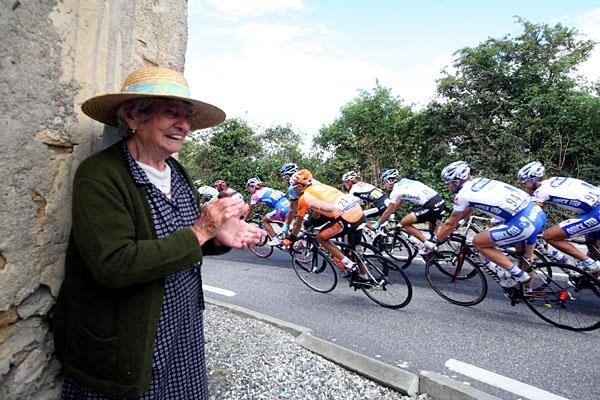
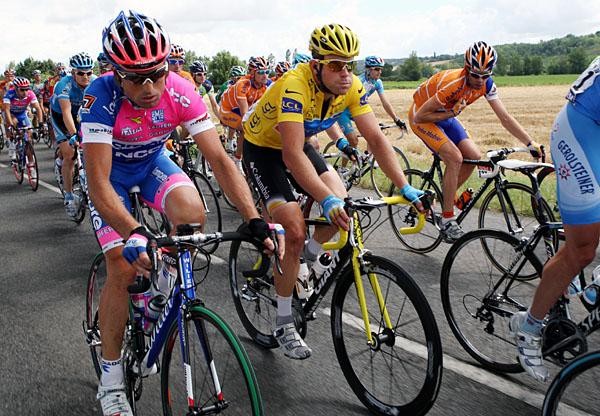
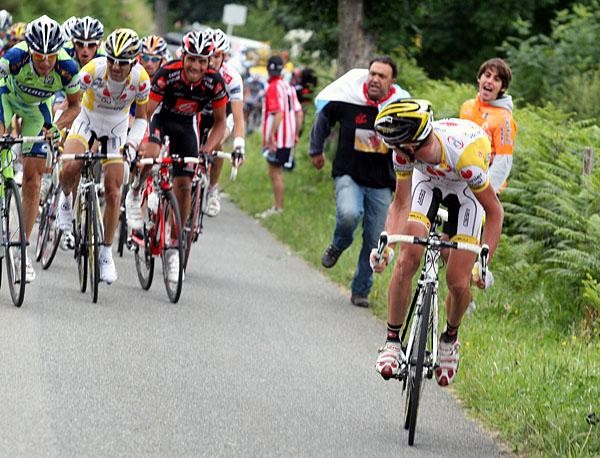
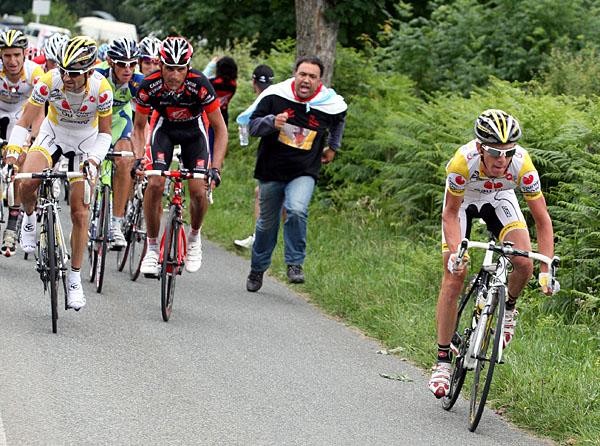
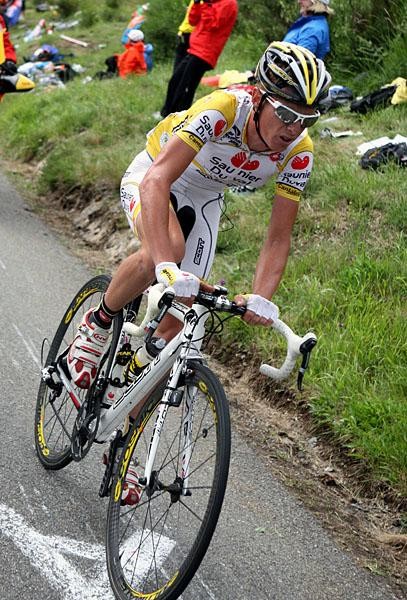
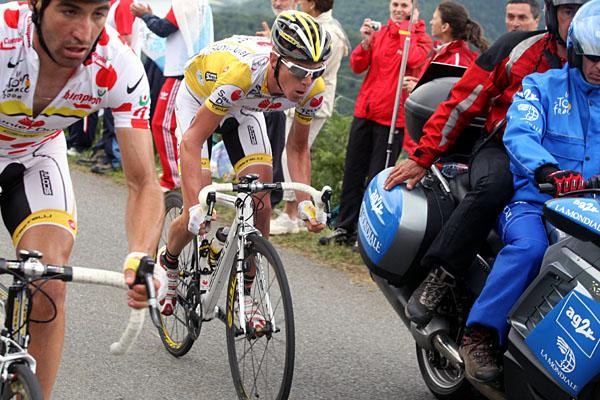
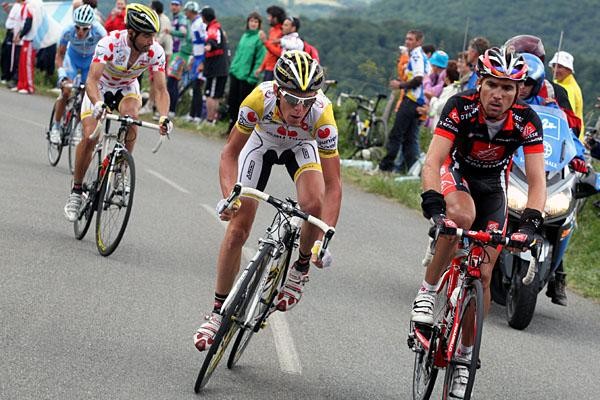
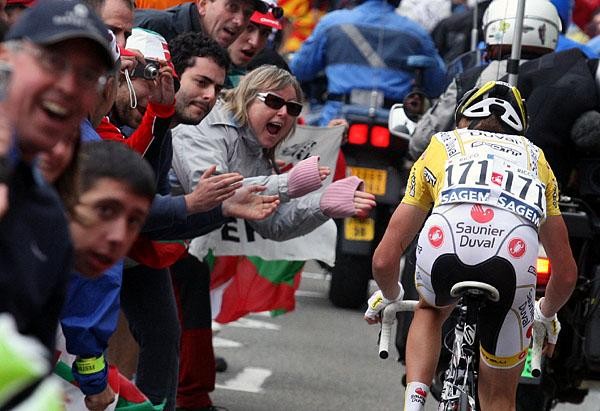
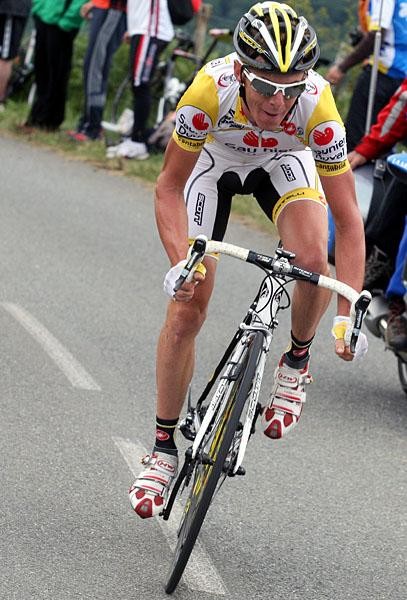
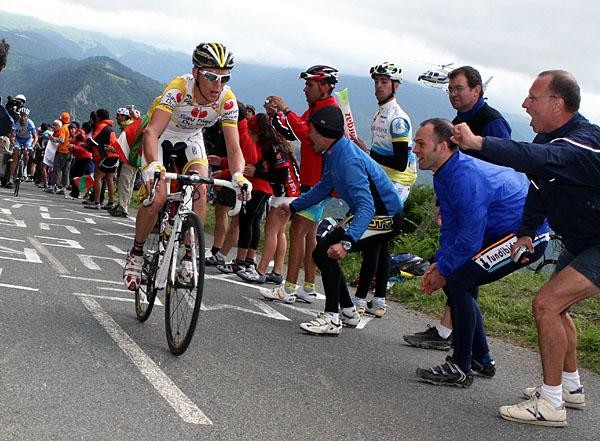
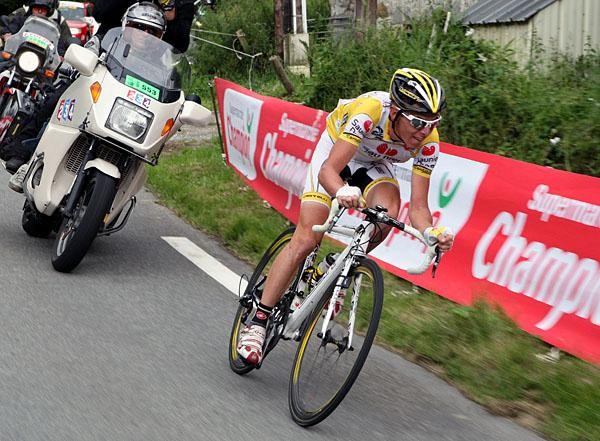
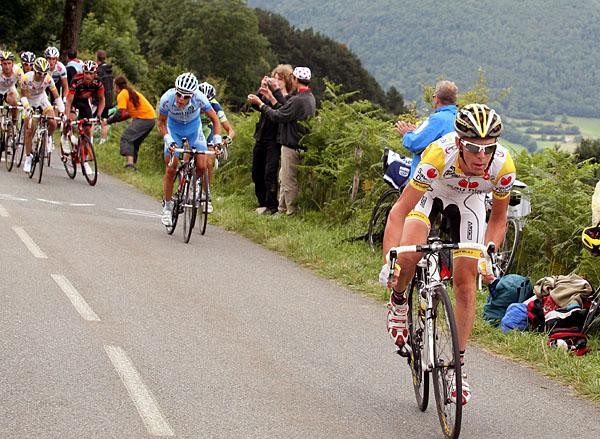
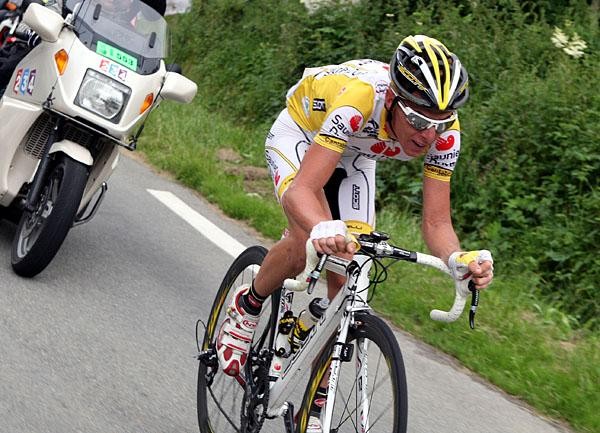
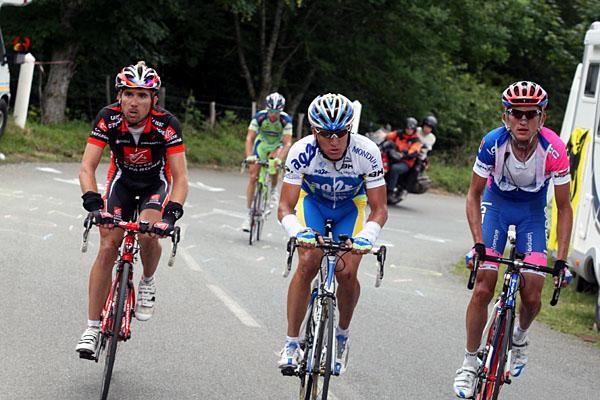
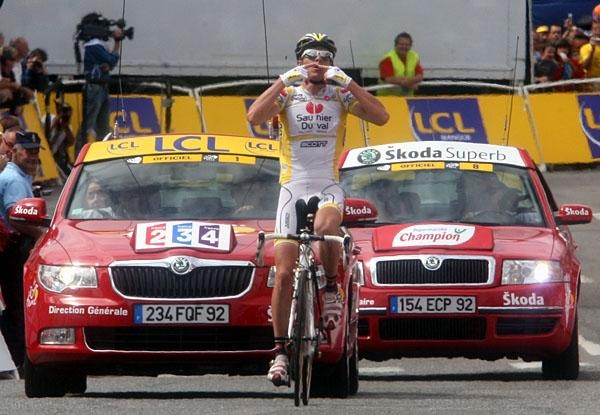
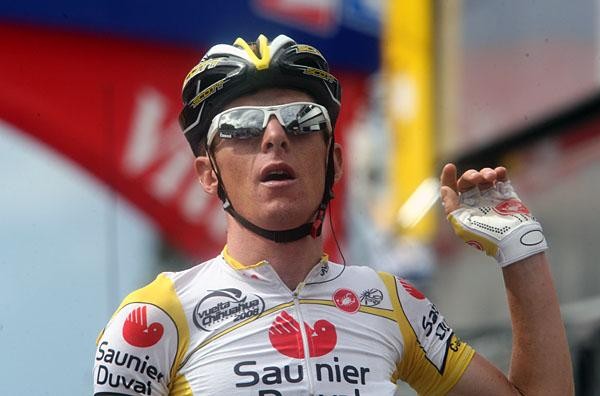
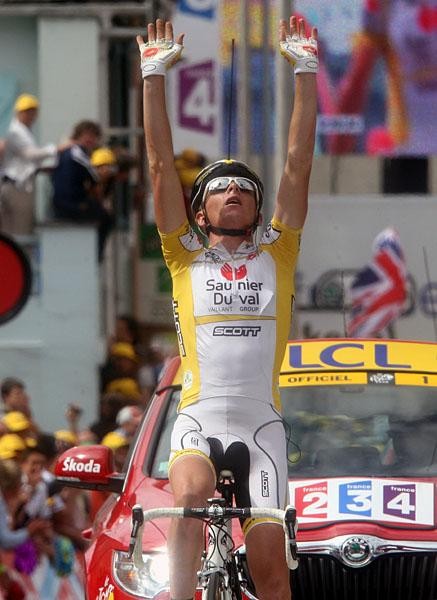
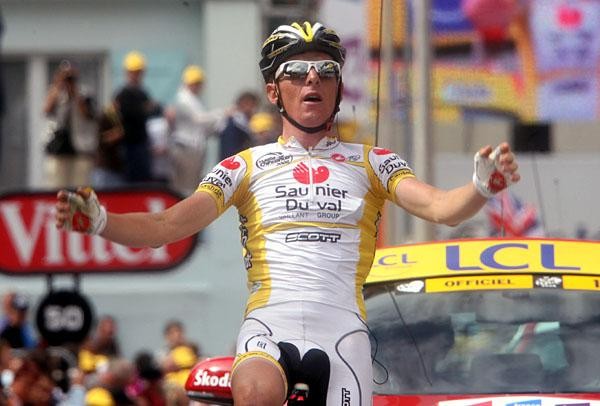
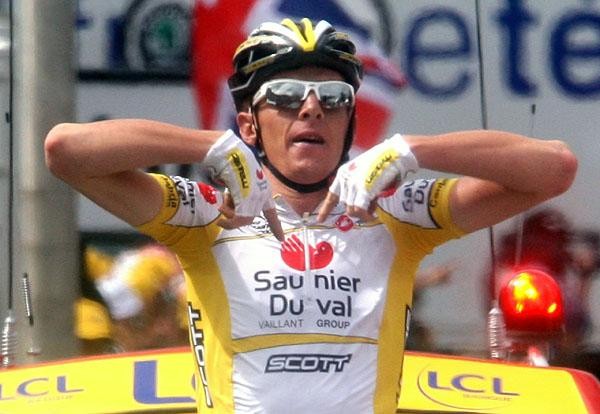
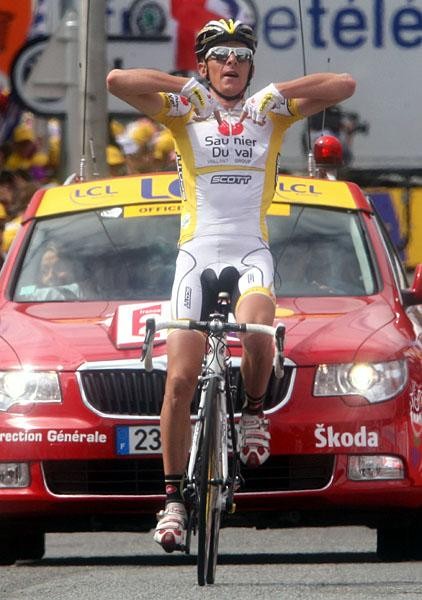
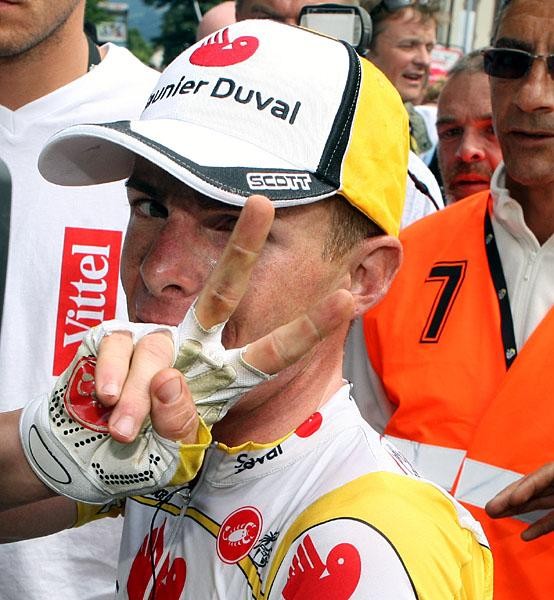
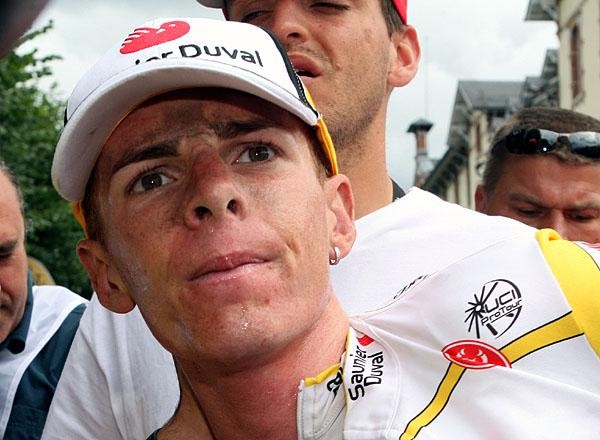
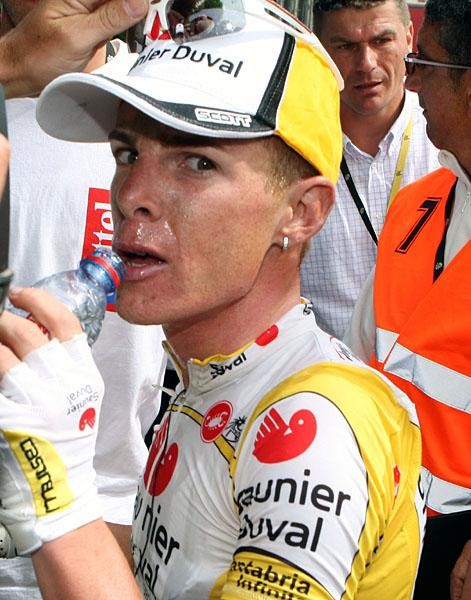
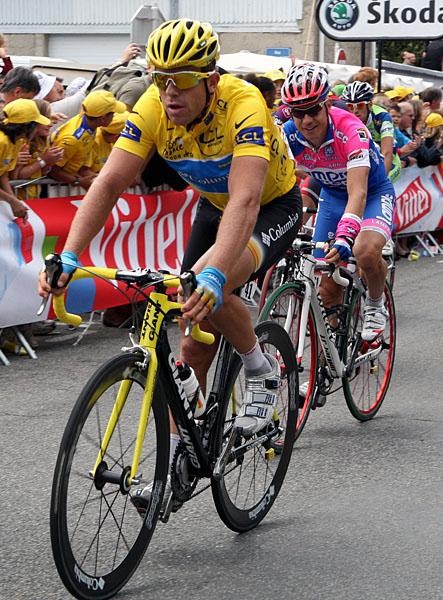
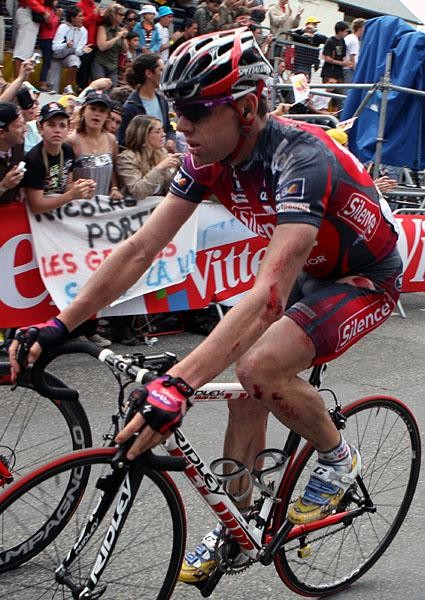
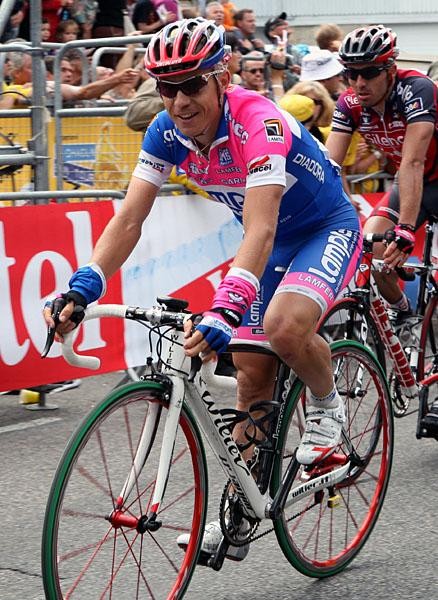
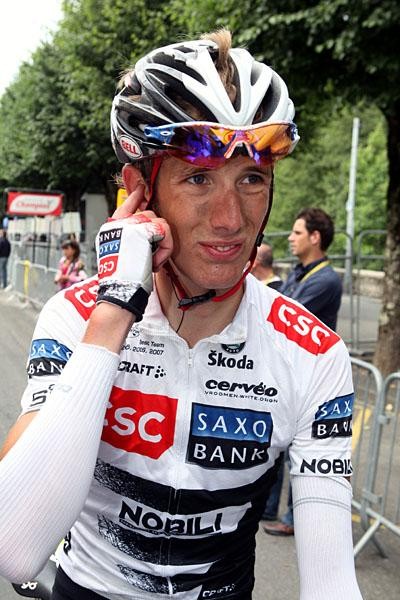
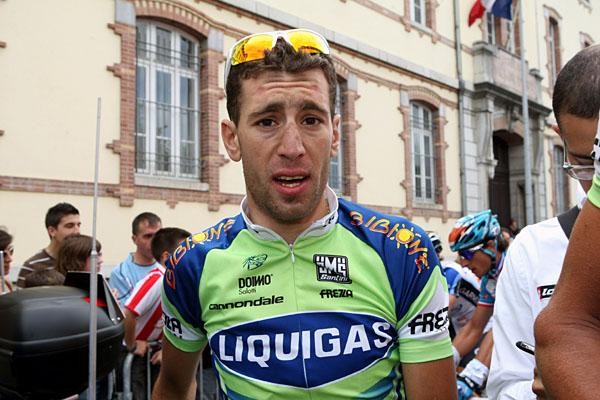
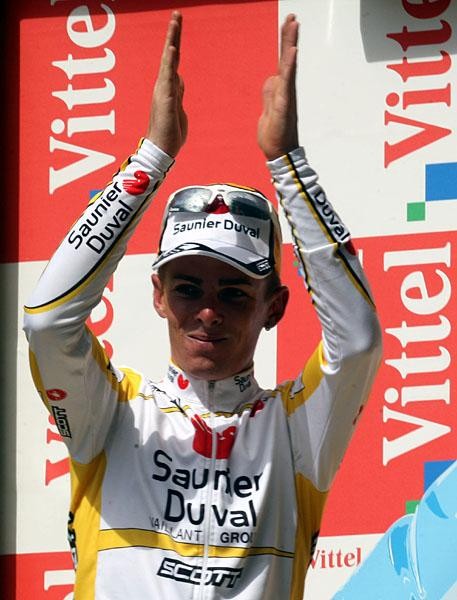
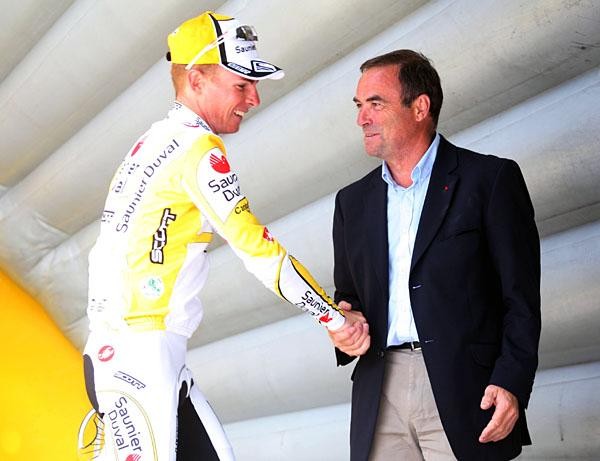
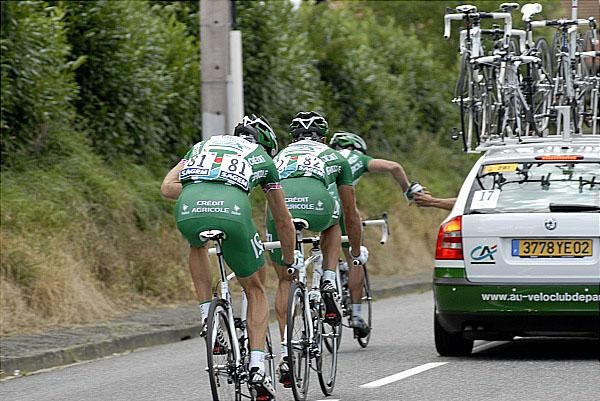
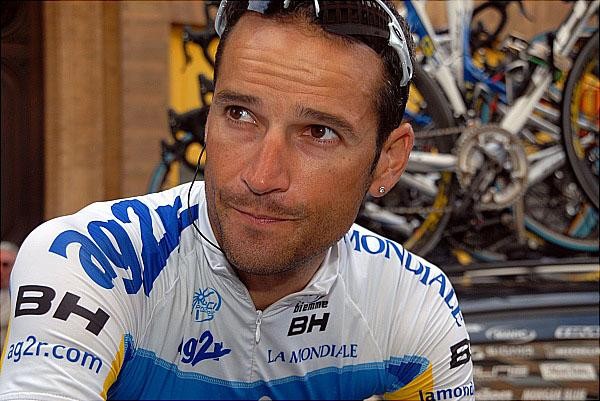
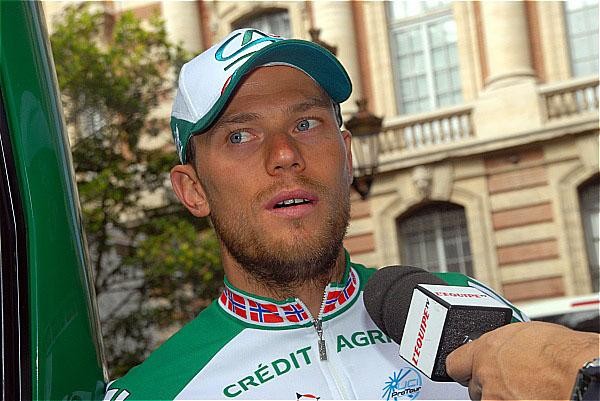
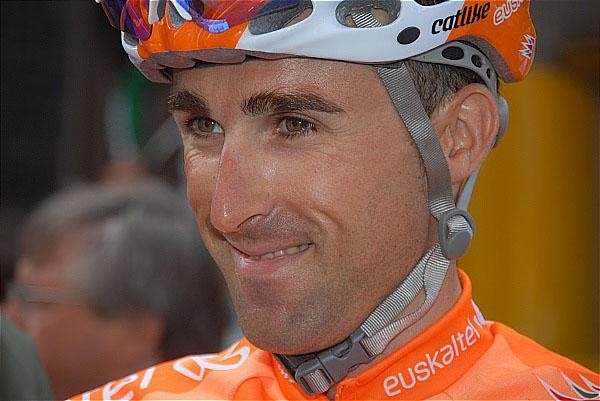
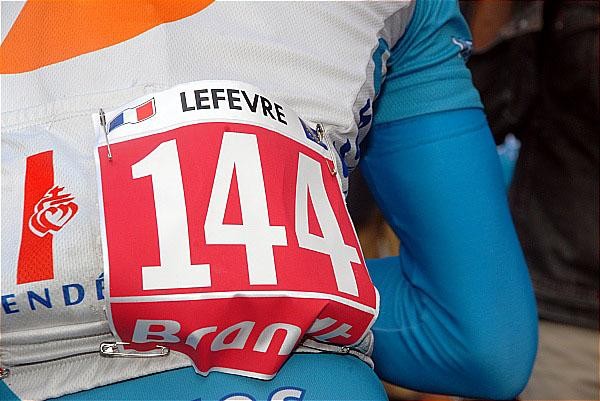
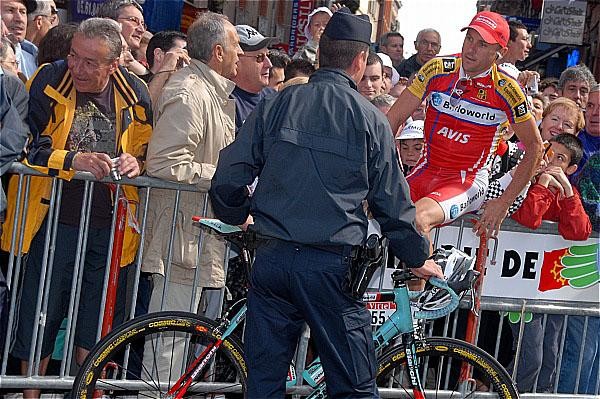
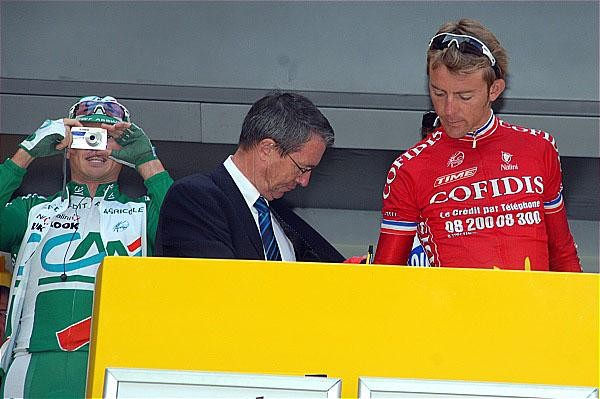
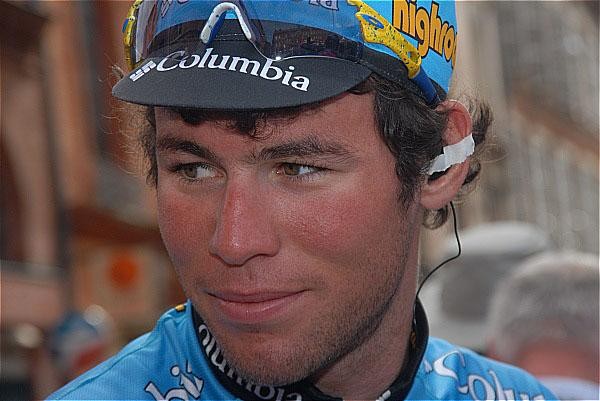
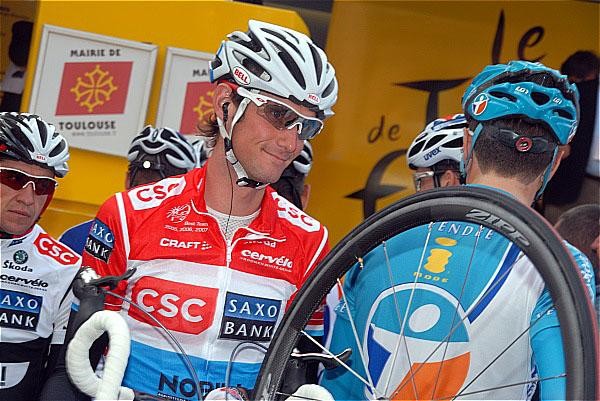
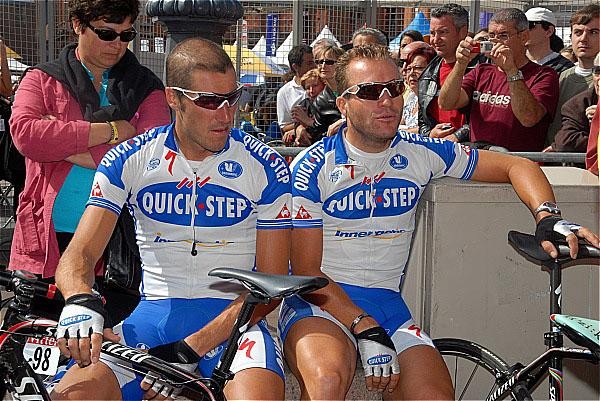
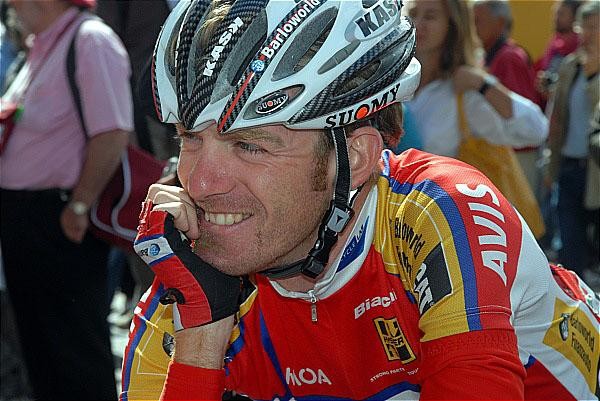
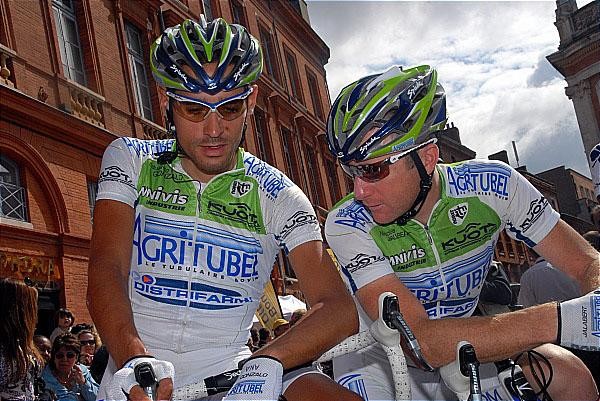
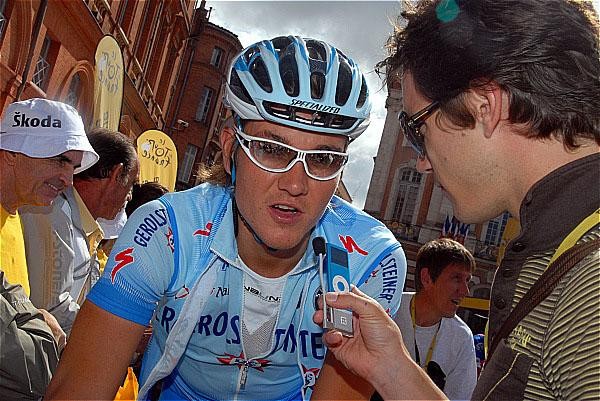
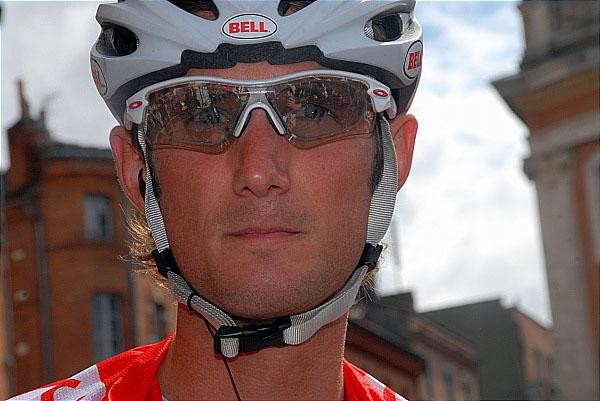
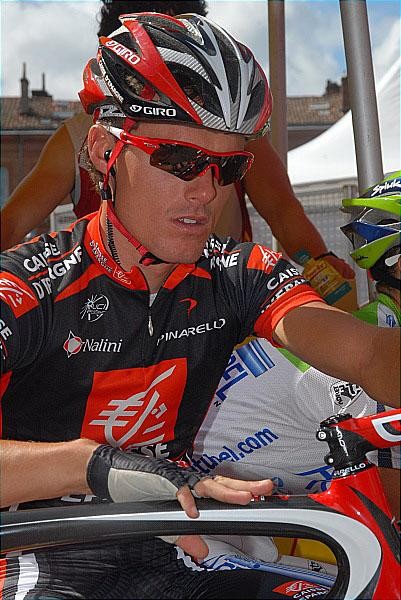
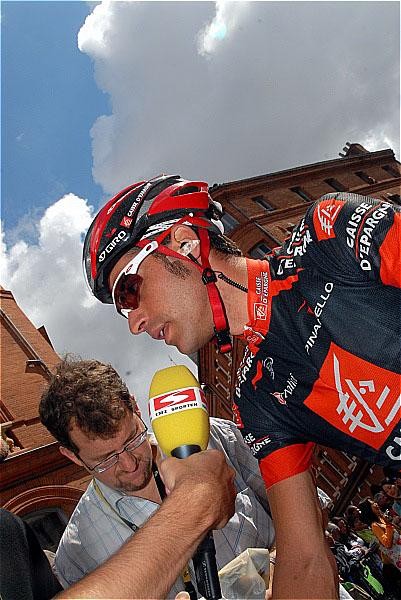
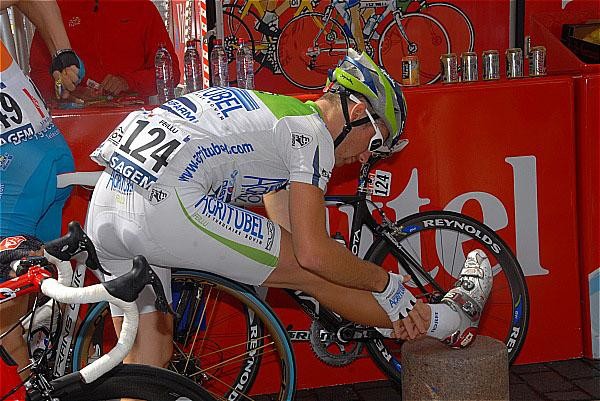
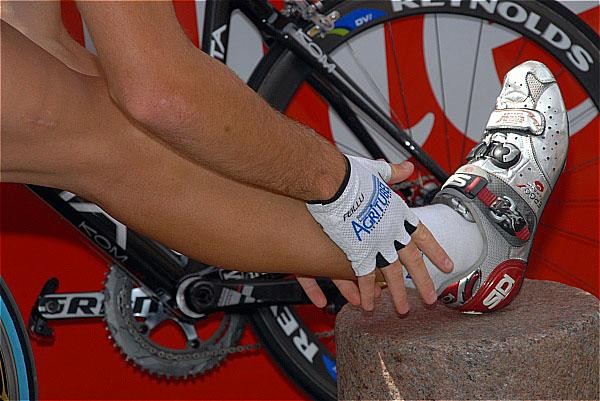
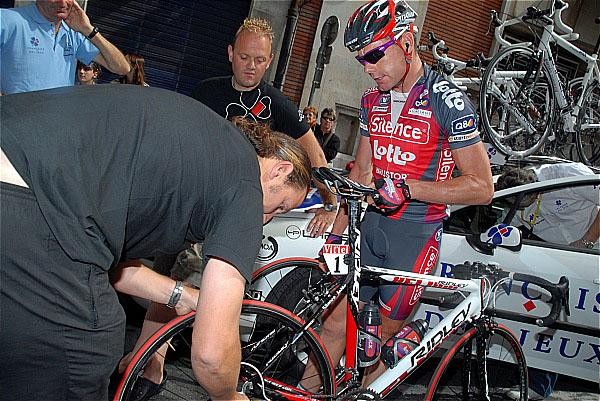
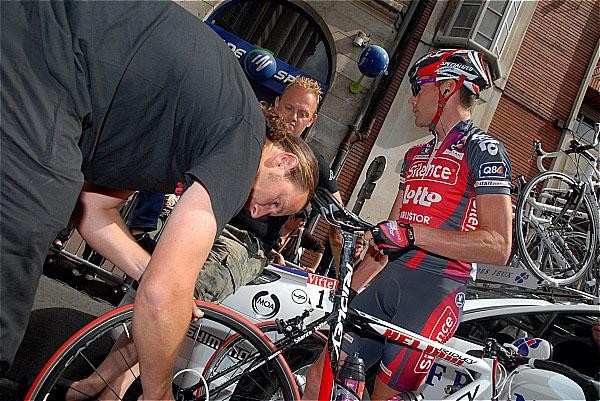
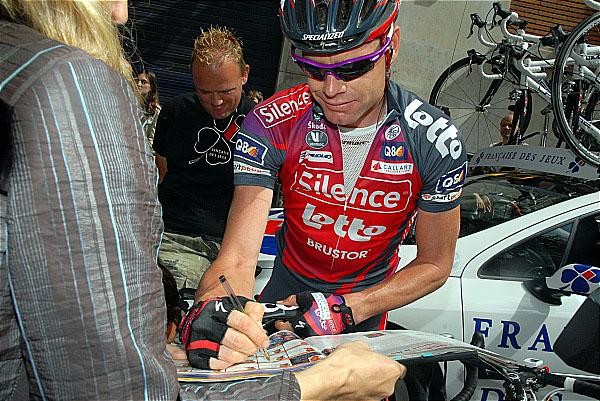
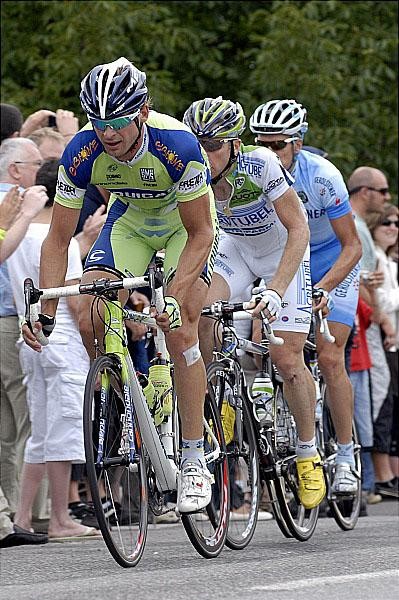
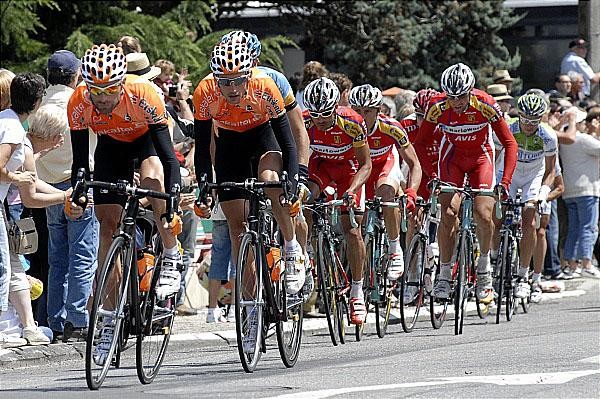
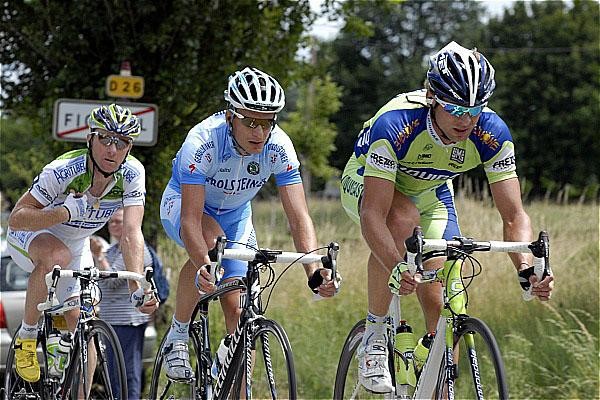
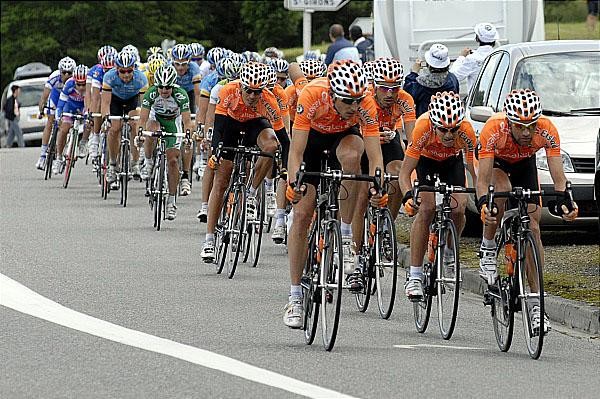
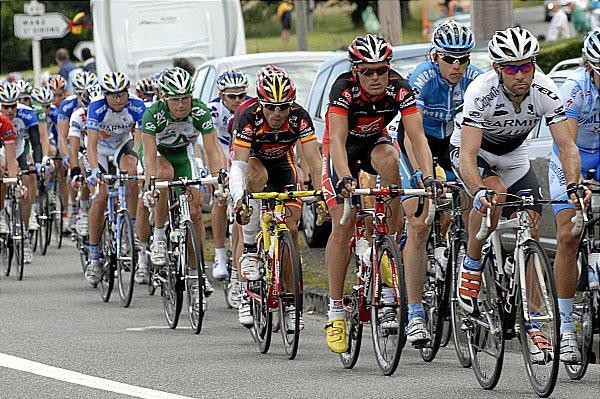
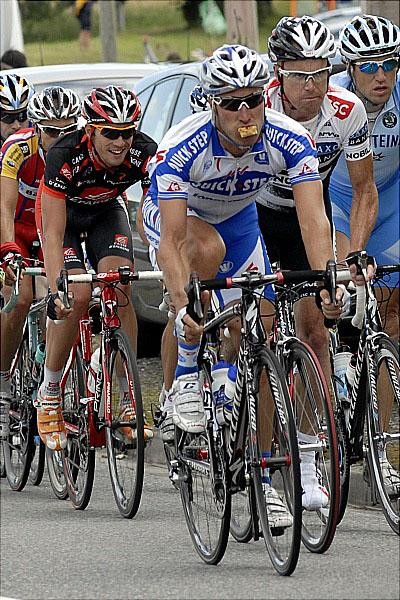
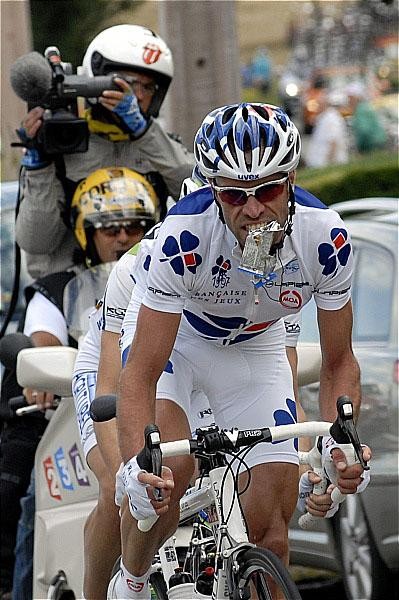
Kirchen holds on to maillot jaune while Evans survives tumble
Italy's Riccardo Riccò opened up the throttle to distance his rivals on the Tour de France's Col d'Aspin in a move similar to the late Marco Pantani to gain a solo win in Bagnères de Bigorre. The chase including classification favourites finished over a minute behind Riccò and included race leader Kim Kirchen (Team Columbia) and a bruised Cadel Evans (Silence-Lotto), who crashed on the decent of the Col de Peyresourde.
Riccò had indicated that he is not at the Tour de France for the classification, and that fact must have put Team Silence-Lotto Evans' mind at ease when he saw the fiery Italian blaze up the road with 30 kilometres remaining overall and four kilometres to go until the top of the Col d'Aspin. The 31 year-old Australian, second overall in the race, crashed on a left-hand turn going on a slight downhill shortly following the race's feed-zone, at kilometre 106. Reports vary on whether it was due to a spectator's bag in his front wheel or due to Evans clipping the rear wheel of an Euskaltel rider.
"He had some sort of bag in his front wheel and it blocked it," claimed team-mate Christophe Brandt, who was just ahead of Evans when the crash occurred. "It was not a musette, but something from along the street. His front wheel stopped and he went over the bars."
Evans declined to comment following the stage while being ushered immediately to the team's car. He only indicated to gathered personnel not to touch his left shoulder.
During the stage, Evans received medical attention to his left shoulder and thigh some thirty kilometres later by race doctor Gerard Porte. The high-mountain passes of Col de Peyresourde (km 166.5) and Col d'Aspin (km 198) were still to come, but the 26-kilometre decent to the finish played into Evans' favour. Tomorrow, 156 kilometres to the mountaintop finish of Hautacam and the day before the race's first rest day, will be a different story and Evans will be looking to fend off the attacks that are sure to come.
Evans survived the Col de Peyresourde and braced himself for the attacks on the Col d'Aspin. Sebastian Lang of Team Gerolsteiner was the only rider left from an early escape and had some four minutes when Riccò started his show. Backing an earlier attack by team-mate David De La Fuente (Saunier Duval - Scott), Riccò gunned up the left side of the road with an acceleration that had many pundits recalling the late Pantani, winner of the 1998 Giro d'Italia and Tour de France.
"We were talking yesterday and he said he wanted to try an attack similar to one of Pantani, and look, he followed through on his proposition," Piepoli said following the stage.
Riccò stormed past Lang with 1.1 kilometres to the top of the Col d'Aspin. He kept riding in a trance-like state to gain 35 seconds to Lang and 1'15" over the favourites' group by the 1489-metre summit.
"The Cobra" Riccò kept charging on the descent to preserve his advantage to the finishing line along Allée Jean Jaurès. Only Vladimir Efimkin of Team AG2R La Mondiale was able to work free of the chase group that was being led by Lampre. Efimkin finished at 1'03. His team-mate Dessel sprinted for third, 12 seconds later, ahead of the classification favourites.
Riccò had started the race with the stated ambition of taking a stage, but has now doubled that total. He also won the sixth stage to Super Besse.
"The others sort of looked at each other. I gave it everything I had and rode a time trial to the finish," said Riccò of Team Saunier Duval following his second Tour win in four days. His win came only one day after a crash midway through stage eight. "I did not feel the pain this morning after I had warmed up, and then I just had the itch to go out and win."
Riccò was one happy man at the finish. "It was a formidable stage. I have now two victories – I am super happy. I was impressive, I went very fast [on the final climb]. My directeur sportif was impressed with my power output the last three kilometres of the climb." He already has his eyes on the next stage. "We will look to tomorrow. [Leonardo] Piepoli is in great form. After that we just look day by day."
Missing from the top group was Thomas Lövkvist, who has been working tirelessly for Columbia team-mate Kim Kirchen. Therefore, Andy Schleck of Team CSC-Saxo Bank took over Lövkvist's maillot blanc of best young rider. Kirchen took back the point's lead maillot vert from Rabobank's Oscar Freire, but the jersey will remain with the Spaniard as Kirchen is still occupied with the yellow top of race leader for the moment.
Kirchen had a tough day in the saddle, appearing under pressure on several occasions, but he was happy to have survived another day in yellow. "I didn't have the best legs today. I was just concentrated on following the wheels." He was impressed with Riccò, but didn't think the Italian would figure in Paris. "Riccò is strong in the mountains, but he is not so good in the chronos [time trials - ed.]. 50 kilometres is long and he may lose three or four minutes."
Stefan Schumacher (Gerolsteiner) – who started the day third overall – cracked on the final climb and slipped to fourth. Christian Vande Velde (Garmin Chipotle H3O) consequently moved up to third place.
How it unfolded
The riders enjoyed the neutral start, rolling through the streets of Toulouse. They knew today would be a tough day, and it was their last chance to relax. And sure enough, the first attack happened right when the neutral zone ended. It contained David De La Fuente (Saunier Duval-Scott), who was trying to defend his polka dot jersey. David Moncoutié (Cofidis), Freddy Bichot (Agritubel), Stef Clement (Bouygues Telecom), Björn Schröder (Team Milram) and Giampaolo Cheula (Barloworld) went with him. But their move was brought to a halt at kilometre 14.
Then, at kilometre 22, a trio with Aleksandr Kuschynski (Liquigas), Sebastian Lang (Gerolsteiner) and Nicolas Jalabert (Agritubel) went clear and quickly gained a minute.
The sprint in Saint-Sulpice-sur-Lèze after 29.5 kilometres was won by Kuschynski, ahead of Jalabert and Lang. The peloton passed the PMU sprint line 1'40 later.
The peloton was not interested in what the break was doing. The gap shot up to 5'40 at kilometre 37 and only 2.5 kilometres later it was 7'30. Next up was the Côte de Saint-Pey, after 42 kilometres.
Only four kilometres later the leaders passed the category four côte de Sainte-Quitterie. Again, Lang took the maximum points, this time ahead of Jalabert and Kuschynski. The laissez faire peloton rolled over the top 13'30 later.
The break never got a larger gap then 14'20 and with 77 kilometres covered it was down to 10'30. Over the côte de Mane, another category four climb, it was again Lang who got three points. Jalabert and Kuschynski followed, receiving two and one point, respectively. Despite the three climbs, the average after two hours was 43.2 km/h.
The sprint at kilometre 113 was won by Jalabert, ahead of Kuschynski and Lang. At the same time, 11 minutes behind, the bunch was winding its way though the feed zone. Only three kilometres later, the category four Col de Buret followed. Lang took the points ahead of Jalabert and Kuschynski.
After the feed zone the Euskaltel-led bunch sped through Aspet at high speeds. Too high for Gorka Verdugo, who crashed in a left hand bend, while helping the team with the pulling. Favourite Cadel Evans (Silence-Lotto) also came to grief, but was quickly back. He suffered a bleeding elbow and a torn jersey and shorts. The entire team dropped back to get him back to the bunch as fast as possible.
With 100 kilometres to go the leaders went over the next climb, the Col des Ares. Lang led Kuschynski over the top, with Jalabert in third. De La Fuente moved up to the front in the peloton, wanting to secure the final point available. Alexandre Botcharov (Crédit Agricole) moved out of the peloton before the top, but it was only to greet his family.
Approaching the top, Samuel Dumoulin (Cofidis) went clear to secure the final point of the climb. De La Fuente was left out in the cold this time.
With a little more than 80 kilometres to go Evans went to the car of Gerard Porte, the Tour doctor. Porte can work wonders from the passenger seat.
The gap had dropped to 10 minutes. That was also the gap when the break the first category one of this Tour, the col de Peyresourde. 13 kilometres and an average gradient of 7.1% awaited the riders.
Jalabert, unable to follow the other two, was the first to get into trouble. Then Lang also dropped Kuschynski and did the last five kilometres to the top by himself. He crested the summit 34 seconds ahead of Kuschynski. Another half minute later it was Jalabert. Maxime Monfort (Cofidis) and David De La Fuente (Saunier Duval-Scott) shot out of the peloton. De La Fuente secured fourth place and nine points. He was still 12 points ahead of Lang in the mountains classification. Luis León Sánchez (Caisse d'Epargne) took sixth and was tied with Lang (both 31).
On the descent the group came together with Jalabert, De La Fuente, Monfort and Sánchez. Kuschynski was dangling in-between.
Lang tackled the final climb of the day, the col d'Aspin, two minutes ahead of Kuschynski, five minutes ahead of the chasers and six minutes ahead to the peloton.
When Lang's team-mate Stefan Schumacher attacked all hell broke loose. Riccardo Riccò and Leonardo Piepoli (Saunier Duval-Scott) were the first to put pressure on some of the favourites. Race leader Kirchen was lucky to have Silence-Lotto pull for Cadel Evans and it came back together.
But the next attack by Riccò proved decisive. He flew by everyone, hands on the drops and with a kilometre to the top he passed leader Lang, who had nothing left. The peloton was 1'20 back. Lang hung on for second. Behind, his team-mate Bernhard Kohl attacked to get third, stealing a few more points from De La Fuente, he crested over the top in fourth. But it wasn't enough, as Lang was now still four points behind De La Fuente in the mountains classification.
Gerolsteiner got some more bad news when Schumacher was dropped on the ascent. His third place overall was in danger. All the other favourites were still there.
An attempt by Vincenzo Nibali (Liquigas) resulted in the Italian reaching Lang, but both got caught by the group of favourites.
After the descent it was a time trial of Riccò on the flat run-in to the finish, with the group behind doing a multi-team trial. Riccò's bike held up in Sainte-Marie-de-Campan (where Eugene Christophe got his repaired in 1913, after breaking his fork in the descent of the Tourmalet).
With 10 kilometres to go the gap was still at 1'20. There was no cohesion in the group behind. Mikel Astarloza (Euskaltel-Euskadi), Sandy Casar (Française des Jeux) and Vladimir Efimkin (AG2R La Mondiale) used the lull to a counter, but only Efimkin was able to hang on to a slim lead.
With five kilometres to go, the gap between the group and Riccò was still 1'12, with Efimkin not more than half a dozen seconds ahead.
The outcome didn't change much, with Riccò taking a solo victory, 1'03 ahead of Efimkin. The main contenders came in at 1'17, except for third-placed Schumacher, who dropped to fourth.
Stage 10 - Monday, July 14: Pau - Hautacam, 156km
The peloton will see more high mountains in this stage which, despite being just 156 kilometres in length, should prove to be one of the toughest of this year's Tour. Despite a reasonably flat start, the stage finishes with the legendary ascents of the Col du Tourmalet and Hautacam. This stage should cause some real gaps to appear between the overall contenders as the favourites for victory in Paris start to show themselves.
Outside Paris and Bordeaux, Pau is the most-visited town for the Tour de France, featuring on the course no less than 61 times before. The first time was in 1930 too, meaning that have only been ten Tours since then that haven't called in at Pau. Last year – as with this year– the city was host to a stage start and a rest day, but the last time a stage finished here, in 2006, Spain's Juan Manuel Mercado (Agritubel) bested Cyril Dessel (Ag2r) in a two-up sprint. The Frenchman was consoled though by taking the yellow jersey for a few days.
Hautacam, a ski resort nestled above the pilgrimage centre of Lourdes, has been a stage finish three times before. The most recent, and most famous occasion was in 2000, when Javier Otxoa (Kelme) took the biggest win of his career. All the headlines went to the rampaging Lance Armstrong though as he stormed away from his rivals in the rain, taking the yellow jersey that he would hold all the way to Paris for his second victory.
This is the stage route used on the Etape du Tour, which was run on Sunday, July 6.
The latest race content, interviews, features, reviews and expert buying guides, direct to your inbox!
Latest on Cyclingnews
-
How to watch the Tour de France 2025: TV, streaming, official broadcasters
Where to watch the biggest race in the world this July -
Reverse engineering stage 13: How do teams prepare for a Tour de France mountain time trial?
In a discipline where marginal gains can mean the difference between winning and losing, how do teams get an edge on the competition? -
Florian Lipowitz moves into Tour de France podium contention with third on Hautacam
Primož Roglič solid but German steps up with strong climbing performance -
Tour de France 2025: All the yellow cards, fines, and penalties
A slew of infractions on stage 10 with three yellow cards

